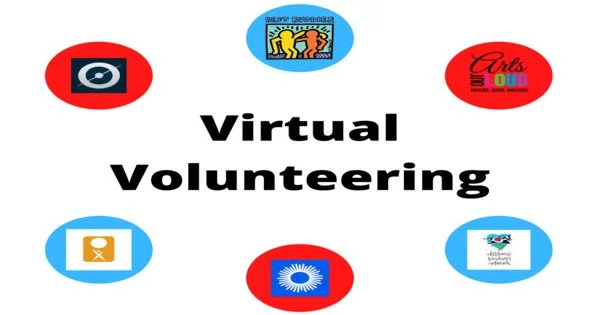Volunteering activities that may be conducted from any location using the internet and digital devices are referred to as virtual volunteering, also known as online volunteering or remote volunteering. It refers to volunteer activities that are conducted entirely or partially using the Internet and a home, school, telecenter, or work computer or other Internet-connected device, such as a smartphone or a tablet.
Individuals can offer their time, skills, and experience to numerous causes and organizations without having to be physically present on-site. Virtual volunteering can take the form of contributing to free and open source software projects or editing Wikipedia.
Key features of virtual volunteering include:
- Flexibility: Virtual volunteering allows individuals to assist when and when they want. Volunteers can participate in events from the comfort of their own homes or any location with internet access, allowing them to contribute at times that are convenient for them.
- Diverse Opportunities: Virtual volunteering options abound in a variety of disciplines, including education, healthcare, environmental protection, advocacy, and others. Writing and research tasks can be combined with graphic design, social media management, and online coaching.
- Global Reach: Individuals can help organizations and causes all across the world by volunteering online. Volunteers can work with organizations and people in other countries to help global initiatives and build cross-cultural understanding.
- Skill-Based Contributions: Virtual volunteering often leverages the specific skills and expertise of volunteers. Professionals can provide specialized services such as web development, legal advice, language translation, and more.
- Reduced Barriers to Participation: Virtual volunteering can reduce traditional barriers to volunteering, such as geographical constraints, physical disabilities, or time limitations. This makes it more accessible to a diverse range of individuals.
Examples of virtual volunteering activities include:
- Online Tutoring: Helping students with their studies through virtual tutoring sessions.
- Content Creation: Writing articles, creating graphic designs, or producing multimedia content for organizations.
- Social Media Management: Managing social media accounts and creating engaging content to raise awareness about a cause.
- Website Development: Designing and maintaining websites for non-profit organizations.
- Translation Services: Translating documents or content to facilitate communication between diverse communities.
Many platforms and websites facilitate virtual volunteering opportunities, connecting volunteers with organizations in need of their skills. It’s important for volunteers to find reputable platforms and organizations to ensure a meaningful and impactful virtual volunteering experience.
















